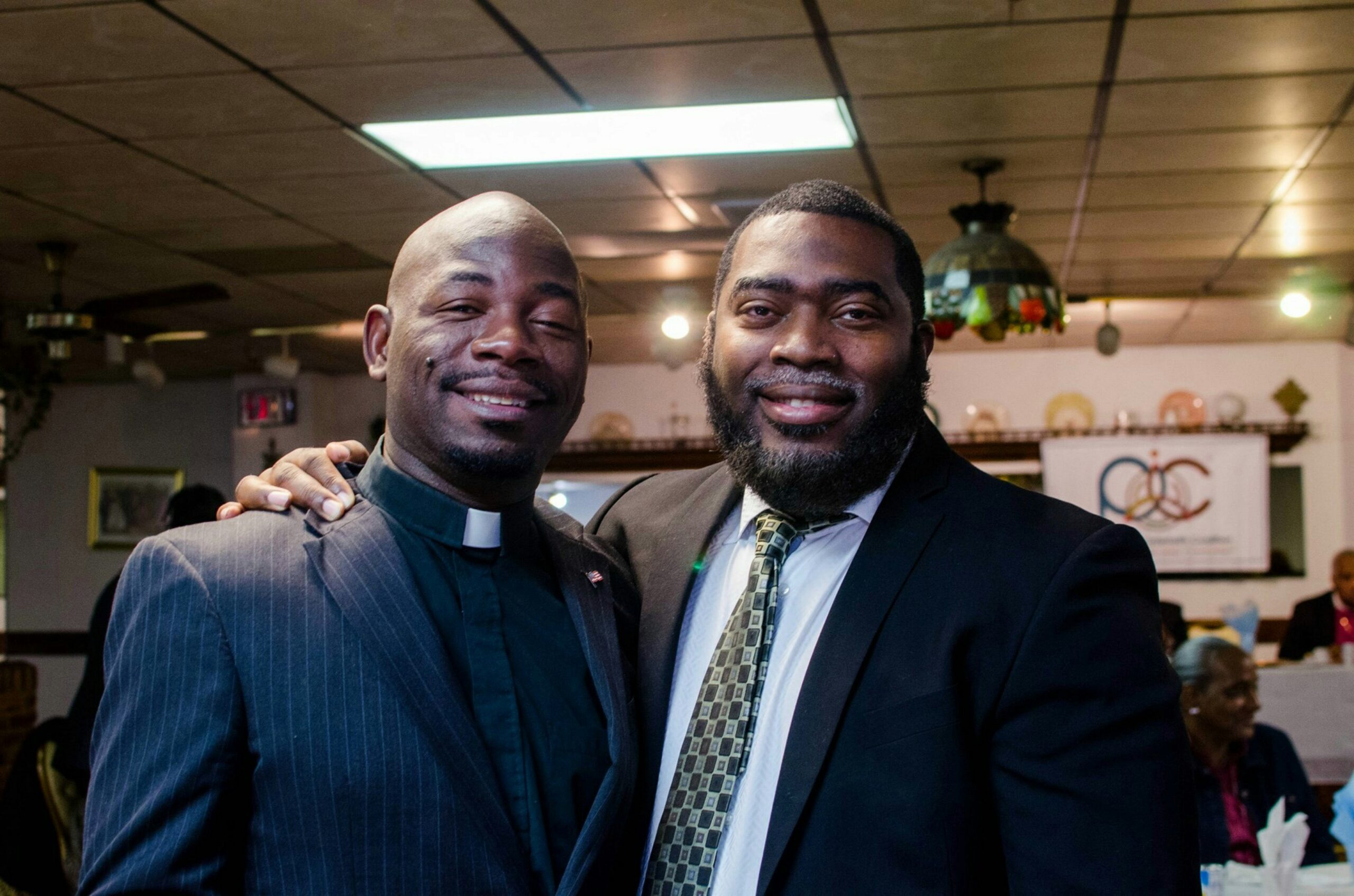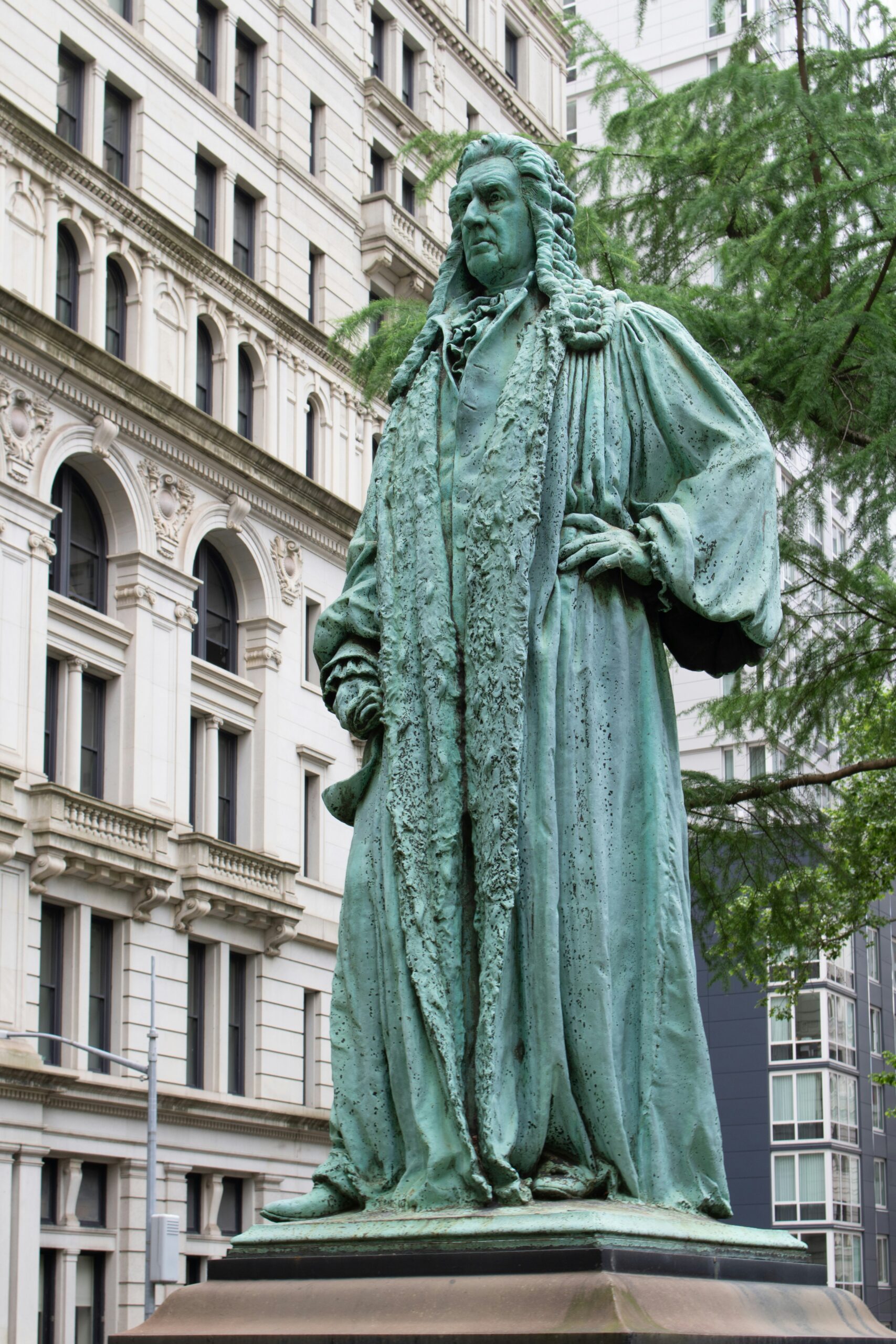
Photo by <a href="https://unsplash.com/@eberdevine" rel="nofollow">Eber Devine</a> on <a href="https://unsplash.com/?utm_source=hostinger&utm_medium=referral" rel="nofollow">Unsplash</a>
Introduction to Pastor Chris Hodges
Pastor Chris Hodges is a prominent figure in the American evangelical landscape, known primarily for his role as the founding pastor of the Church of the Highlands, located in Birmingham, Alabama. Since its inception in 2001, the church has grown exponentially, becoming one of the largest congregations in the United States, attracting thousands of attendees every week. Under his leadership, Church of the Highlands has expanded its mission, emphasizing community development, spiritual growth, and outreach programs aimed at addressing various social issues.
Hodges, born and raised in Louisiana, demonstrated a passion for ministry early on, obtaining his degree in communication from Louisiana State University before pursuing pastoral training. His journey saw him serve in various capacities in small churches before establishing his vision for a new church that would leverage creative methods to engage contemporary society. His innovative approach to worship and his emphasis on relevant teaching have significantly impacted the Christian community at large.
Beyond his ministry at Church of the Highlands, Hodges has become a sought-after speaker and author, sharing insights on leadership, faith, and personal development. He has also founded the Grow Church Network, aimed at equipping pastors and church leaders with resources for effective ministry. His influence is not limited to local congregations; he is frequently invited to speak at conferences and has garnered attention through media appearances, making him a well-recognized voice in current faith discussions.
Within the Christian community, Pastor Hodges is often seen as a bridge between traditional beliefs and modern-day societal challenges. His ministry tackles issues such as mental health, family dynamics, and social justice, positioning him as a relevant leader in navigating contemporary issues within the faith context.
Overview of the Controversy
The controversy surrounding Pastor Chris Hodges began to unfold in mid-2023, when allegations concerning financial misconduct were brought to light. Pastor Hodges, who leads the vibrant Church of the Highlands in Alabama, was accused of mismanagement of church funds and overly extravagant spending that diverged from the church’s stated mission. These claims caught the attention of both local and national media, initiating a deeper investigation into the church’s financial practices.
The timeline of events leading to the scandal is significant. Initially, a whistleblower from within the church raised concerns about potential breaches of transparency. This resulted in a series of reports that provided a platform for other disgruntled former members and staff to come forward with similar claims. By July 2023, an official audit commissioned by the church board confirmed discrepancies in the financial reporting practices, raising additional questions about accountability and governance. As the crisis deepened, reactions poured in from various sectors, including the church community and the public.
As a pastor known for his charismatic preaching style and community initiatives, Pastor Hodges’ moral and ethical credibility faced immediate challenges. Supporters of the ministry expressed disappointment and confusion, while critics argued that the allegations highlighted systemic issues within megachurch culture. The situation exacerbated tensions among church followers, leading to protests and calls for transparency in the use of donations. The focus also shifted toward how these events could potentially harm not only Pastor Hodges’ reputation but also the broader evangelical community, particularly regarding trust in church leadership and the handling of finances.
This controversy serves as a significant case study in the discourse surrounding church accountability and ethical governance, provoking discussions about the responsibilities of influential spiritual leaders in maintaining integrity in their ministries.
Key Players Involved in the Scandal
The controversy surrounding Pastor Chris Hodges has drawn attention not only due to his prominence in the evangelical community but also because of the various individuals and organizations involved. At the center of this scandal is Pastor Chris Hodges himself, the founding pastor of Church of the Highlands in Alabama, known for his charismatic leadership and dynamic preaching style. Criticisms against him emerged primarily from various quarters of the Christian community who questioned his financial transparency and management practices within the church. Detractors have raised concerns about the lavish lifestyle associated with high-profile pastors, which they believe runs contrary to the teachings of humility and sacrifice in Christianity.
Supporting Hodges are a range of church members who have publicly defended him, asserting that his contributions to the community and the broader church are invaluable. Prominent figures in his defense include other pastors and church leaders who regard him as an asset to the faith community. They emphasize his charitable works, outreach programs, and the growth of Church of the Highlands as successes that should not be overshadowed by allegations of financial misconduct.
Additionally, the controversy has attracted the attention of public figures, including theologians and spiritual advisors, who have weighed in on the discussion. Some have called for greater accountability in megachurch leadership, encouraging transparency and ethical stewardship of church resources. Others have criticized the media’s role in sensationalizing the scandal, suggesting that it overlooks the positive impact Hodges has had on countless lives through his ministry.
Understanding the dynamics between these key players—Hodges, his supporters, critics, and outside commentators—provides a clearer picture of the complexities within this controversy. Each party plays a crucial role in shaping the narrative that surrounds Pastor Chris Hodges and the ongoing debate about leadership and accountability in large religious organizations.
Public Reaction and Media Coverage
The controversy surrounding Pastor Chris Hodges has elicited a wide range of responses from the public, demonstrating the polarized opinions prevalent in contemporary discussions about leadership in religious institutions. His congregation and other church attendees have exhibited both ardent support and significant backlash. Many members of the church have rallied behind Hodges, viewing him as a source of spiritual guidance and integrity. His supporters often emphasize his lengthy tenure and contributions to their community, stating that such allegations do not reflect the core values that he promotes within the church.
Conversely, there has been a notable segment of the public that has expressed discontent regarding Hodges’s behavior, viewing it as a deviation from the ethical standards expected of religious leaders. Critics have pointed out alleged discrepancies between his teachings and his actions, creating a sense of distrust among some congregation members. This division has underscored the complexity of public reaction to scandals involving prominent figures in faith-based settings, where expectations and realities often collide.
The role of media—both traditional and social—has been instrumental in shaping the narrative surrounding this controversy. Mainstream news outlets have highlighted the incident, with headlines that provoke interest and discussion. Articles detailing the events have circulated widely, often focusing on the implications of Hodges’s actions for his ministry and broader conversations about accountability within religious organizations. Social media platforms have amplified these discussions, allowing for immediate reactions and commentary from both supporters and detractors. Hashtags related to the controversy have trended, illustrating the real-time public engagement with the incident.
This blend of support and backlash, amplified by media coverage, has forged a complex landscape of public opinion around Pastor Chris Hodges. It remains to be seen how these dynamics will evolve as the situation progresses.
Theological and Ethical Implications
The controversy surrounding Pastor Chris Hodges raises significant theological and ethical questions that merit careful examination. At the heart of this discussion is the doctrine that shapes church leadership and governance. Within Christian teachings, the integrity of church leaders is paramount, as they are often viewed as spiritual guides and moral exemplars. Issues surrounding doctrinal integrity may arise when leaders, such as Pastor Hodges, find themselves embroiled in scandal, potentially leading congregants to question the authenticity of their teachings and the overall health of the faith community.
From an ethical standpoint, moral accountability within church leadership becomes a critical concern. Pastors are expected to uphold high standards of behavior, reflecting the values and principles of their faith. Therefore, any misstep or failure to adhere to these standards may not only damage an individual leader’s reputation but could also have broader implications for the church as a whole. Congregants may grapple with feelings of betrayal or confusion, leading to divisions within the community and a challenge to the collective faith experience.
Furthermore, the implications for broader faith communities highlight the interconnectedness of theological and ethical issues. Controversies of this nature can serve as catalysts for important discussions about the role of transparency, accountability, and grace within the church. Faith communities may be prompted to re-evaluate their governance structures, fostering environments where leadership is not just a position of authority but also a role of service and responsibility. This prompts a theological reflection on the importance of humility, repentance, and reconciliation, all integral elements of the Christian faith.
In conclusion, the scandal surrounding Pastor Chris Hodges exemplifies the intricate relationship between theology and ethics in church leadership. The discourse ignited by such controversies encourages faith communities to engage in critical self-reflection about their values, practices, and expectations of those in positions of spiritual authority.
Impact on Church of the Highlands and its Congregation
The controversy surrounding Pastor Chris Hodges has had a significant impact on the Church of the Highlands and its members, prompting a range of emotional responses and adjustments within the community. Following the revelation of the scandal, attendance at services experienced a noticeable decline as some congregants expressed disappointment and confusion regarding their leader’s actions. Many long-time members struggled to reconcile the teachings of the church with the incidents involving its pastor, leading to a period of uncertainty and discontent that was palpable within the congregation.
In light of these events, the church’s leadership has taken deliberate steps to address the concerns of its members and to foster an environment of open communication. Pastoral staff held meetings to discuss the implications of the scandal and provided platforms for congregants to voice their feelings and seek clarity. This approach aimed to mitigate the emotional distress experienced by many, as well as to facilitate healing within the community.
Leadership at the Church of the Highlands has recognized the necessity of transparency during this tumultuous time. Initiatives have been introduced to rebuild trust among congregation members. These efforts include regular updates on the church’s actions and decisions related to the controversy, as well as engaging members in the decision-making processes moving forward. The church has also emphasized the importance of accountability, ensuring that the principles guiding the community are reflective of morals and ethics aligned with their faith.
Despite the challenges posed by this scandal, it is noteworthy that many congregants have remained steadfast, reaffirming their commitment to the Church of the Highlands. This resilience showcases the strength of community ties and the deep-rooted beliefs that bind members together, even amidst adversity. The journey toward rebuilding and healing reflects not only the integrity of the church’s leadership but also the enduring faith and dedication of its congregation.
Comparative Analysis of Similar Scandals
The recent scandal involving Pastor Chris Hodges has incited considerable discourse, paralleling a range of controversies that have struck various church leaders in recent years. Analyzing these situations reveals recurring patterns that transcend individual circumstances, shedding light on broader issues within religious institutions. For instance, the fallout from controversies surrounding figures like Hillsong’s Carl Lentz and the late Ravi Zacharias highlighted significant breaches of trust, with both cases unveiling issues related to accountability and transparency in church leadership.
In each of these instances, reactions from the community have varied widely, often influenced by the severity of the allegations and the perceived authenticity of the leaders involved. Communities have responded with a mix of support for their leaders, driven by emotional ties and loyalty, while also grappling with feelings of betrayal and confusion as the facts unfold. This reaction underscores the complex dynamics at play when leaders face public scrutiny, where congregants must reconcile their faith with the flawed realities of those at the helm.
A notable pattern emerges regarding the institutional response. Churches often find themselves unprepared to navigate crises of this nature. In the aftermath of scandals, many organizations display a reluctance to implement change, resulting in a cycle that leaves similar issues unresolved. However, some institutions have taken proactive measures by establishing clearer guidelines for accountability and support systems for leaders facing potential moral failures. This approach demonstrates a crucial lesson: the importance of fostering an environment that prioritizes integrity and ethical oversight, essential for sustaining trust among congregation members.
Ultimately, these comparisons elucidate critical themes within the sphere of church leadership scandals, revealing that the lessons learned from the controversies like that of Pastor Chris Hodges are not isolated. They reflect ongoing challenges that demand a concerted effort from religious institutions to prioritize transparency, accountability, and support to mitigate potential crises in the future.
Future Outlook for Pastor Chris Hodges
The recent controversy surrounding Pastor Chris Hodges has undoubtedly raised questions about his future in ministry and the direction that his church may take moving forward. While it is difficult to predict the exact trajectory of his role in the church, several factors could influence his continued presence and impact within his community. It is possible that Pastor Hodges may make efforts to address the challenges raised by this situation through transparent communication and a renewed commitment to his congregation. These efforts could involve public statements that clarify his stance on the issues at hand, as well as initiatives aimed at fostering healing within the church community.
Additionally, the dynamics within the church may evolve as a result of this controversy. The need for rebuilding trust among congregants may prompt shifts in leadership roles or alterations to existing church doctrine. This period of introspection could lead to a reevaluation of core beliefs and practices, making room for more inclusive and supportive measures that address congregants’ concerns. Furthermore, it is essential for the church leadership to engage in dialogue with the wider community, allowing for input that could shape future strategies and direct efforts towards recovery and unity.
Moreover, Pastor Chris Hodges may seek to embark on community outreach programs designed to strengthen bonds with both congregants and local residents. Such initiatives could demonstrate his commitment to serving others in tangible ways, addressing the community’s needs while also restoring faith in his leadership. As he navigates the complexities of this situation, Hodges’s ability to adapt and lead could ultimately determine the future trajectory of his ministry and the lasting impact he leaves on both his church and the broader community. In conclusion, while uncertainties remain, there are numerous pathways for Pastor Hodges to chart a course toward renewal and reconciliation amidst the ongoing scrutiny.
Conclusion: Reflecting on Controversy and Growth
The controversy surrounding Pastor Chris Hodges serves as a critical case study for understanding the complexities of church leadership and the underlying principles of accountability and integrity within religious institutions. Throughout this discourse, we have examined not only the specifics of the situation involving Pastor Hodges but also its broader implications for congregations and church governance. In doing so, it becomes clear that each challenge confronted by a leader reverberates beyond the individual and affects the community as a whole.
This incident has sparked essential conversations about the expectations placed on church leaders and the moral responsibilities they hold. Leaders are often viewed as moral compasses within their communities, and when controversies arise, they call into question the trust and reliance the congregation places in their leadership. The importance of maintaining high ethical standards and fostering transparency cannot be overstated, as these elements are foundational for healthy church environments.
Moreover, this situation reflects a growing need for churches to implement systems of accountability that protect both leaders and congregants. Such mechanisms can create a culture of openness and prevent potential scandals from undermining the mission of the church. It also invites congregations to engage in introspection regarding their role in supporting or challenging their leaders, cultivating an atmosphere of constructive feedback rather than blind allegiance.
Ultimately, controversies like the one involving Pastor Chris Hodges underscore the potential for growth that can emerge from facing challenges head-on. By addressing issues directly and fostering a culture rooted in integrity, church leaders and congregations can evolve, learning valuable lessons that promote resilience and a renewed commitment to their shared values.



